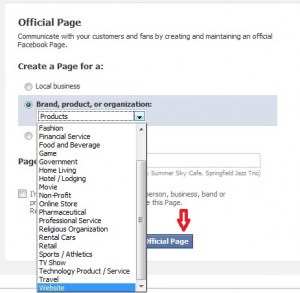The Dangers of Social Media Background Checks

Social media background checks are becoming a standard part of the hiring process. Why do employers check Facebook and other social media accounts, and what are they looking for? Employers tend to lean on social media background checks to attempt to validate the qualifications of a candidate. According to the Society for Human Resource Management or SHRM, employers also use social media channels to search for potential candidates.
What are the dangers of social media background checks? Learn how social media background checking could affect your hiring and recruitment process.
Finding Fake Social Media Accounts
Many people are highly engaged online, especially on social media. Employers should be wary regarding searching for potential candidates or even confirming a candidate’s qualifications on social media networks because of the massive proliferation of fake accounts—just one reason why it’s difficult to judge a candidate’s worth based on his or her supposed social media profile.
The world’s greatest workplaces have solid background checks in place to ensure that the entire company is protected against new employees who have background issues that may indicate professional unsuitability, violence, or other significant red flags. If they do want to use social media in addition to responsible background checks to attempt to enhance their understanding of a potential new hire’s character, employers should maintain an awareness of the signs of fake accounts.
Here are some tips to spot fake social media accounts.
- Too-Good-to-Be-True Information: Many social media accounts are created just to impress employers. Be wary when dealing with social media accounts that present perfect credentials, vague or overblown information, or too-impressive posts.
- Recently-Opened Social Media Accounts: Brand-new social media accounts are questionable. Many employees are already aware of social media background checks, so some take advantage and try to create bogus or fake accounts to impress employers. That’s why it’s hard for employers to ever verify whether any account is the correct social media profile of a particular
- Consistent Photos or Images: Fake accounts tend to have stunning photos and videos. While other accounts would sometimes show people partying, stolen shots, and even inappropriate behavior, fake accounts are often consistently embedded with staged posts or tailored shots to impress.
- No Pushed Conversations: Accounts only broadcasting or pushing out content and updates with no engagement and are often fake social media accounts.
Legal Implications
Employers conduct social media background checks to assess whether a candidate is honest about his or her character or reputation. There are pieces of information that employers cannot ask or explore during interviews, such as a candidate’s sexual orientation, nightlife, membership to LGBT organizations, ethnic affiliations, and religion.
While employers may want to assess if a candidate has been involved in rude partying, traffic violations, badmouthing, or domestic violence, there are possible legal implications to performing social media background checks. According to SHRM, it is illegal to request applicant social media logins in multiple states, including Illinois, Maryland, Colorado, California, and New Jersey.
Here are some ways to use social media in screening candidates without violating the law:
- Improve your social media posts as a business or company to attract potential candidates and encourage job-hunters to engage with you and apply. Applicants will find and follow your fan page, making it easier for you to get a sense of their social personalities based on how they interact with your official accounts.
- Craft interview questions that assess and validate a person’s social experiences and character outside of the workplace, such as asking about hobbies, recent vacations, or interest in events.
Discrimination and Unpredictability
Employment discrimination laws reinforce that employers should not discriminate against candidates. It is unacceptable to discriminate against candidates based on age, gender, sexual orientation, race, religion, place of origin, pregnancy, social relations, and disability.
Because of the possibility of fake accounts and the chance of discrimination, employers should never base hiring decisions on social media background checks. The information on social media channels is unpredictable and can cause bias without an employer or hiring manager realizing it. It is still best to contact previous employers and character references and conduct a thorough interview. Combining traditional and social avenues for collecting information on a candidate can be effective when performed responsibly.
Future Social Media Conflicts
Many employers want to do away with employees who express complaints about their workplace on social media networks. The reputation and image of a company can be affected when employees drag in bad publicity through social media channels.
While social media background checks can help employers to assess if a candidate has a history of complaining about their managers online, it could also lead to significant concerns. Most employees are legally protected against being fired for publicly expressing their opinion of a company or manager, including on social media. Even without this legal consideration, most employees identify employer social media checks as humiliating, potentially discriminatory, and unacceptable as a violation of their privacy.
Conclusion
Employers and employees are going beyond the traditional boundaries of the hiring and recruitment process. Social media background checks can be discriminatory, unpredictable, and in violation of federal employment laws—and they may reveal fake accounts, which could lead to hiring employees with little to no understanding of their backgrounds.







